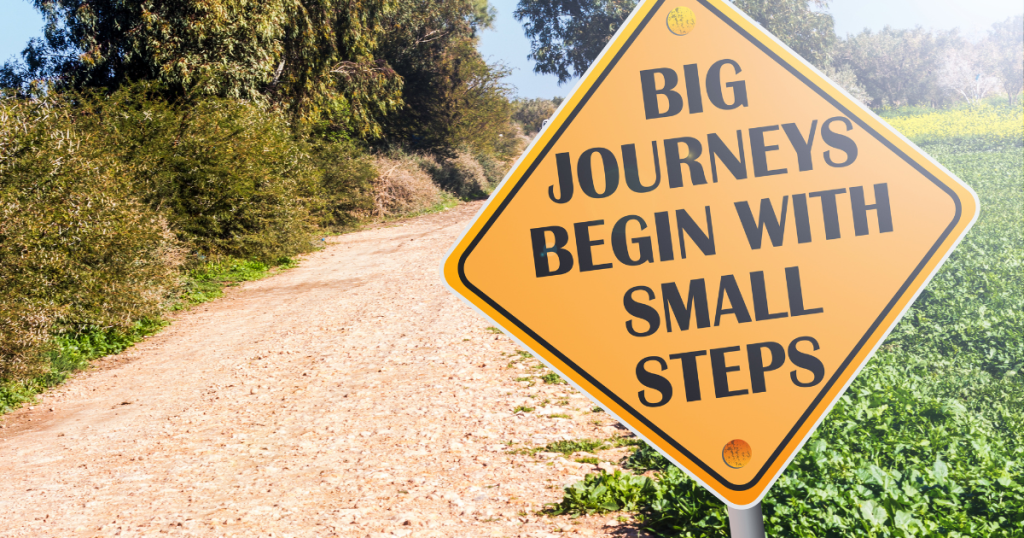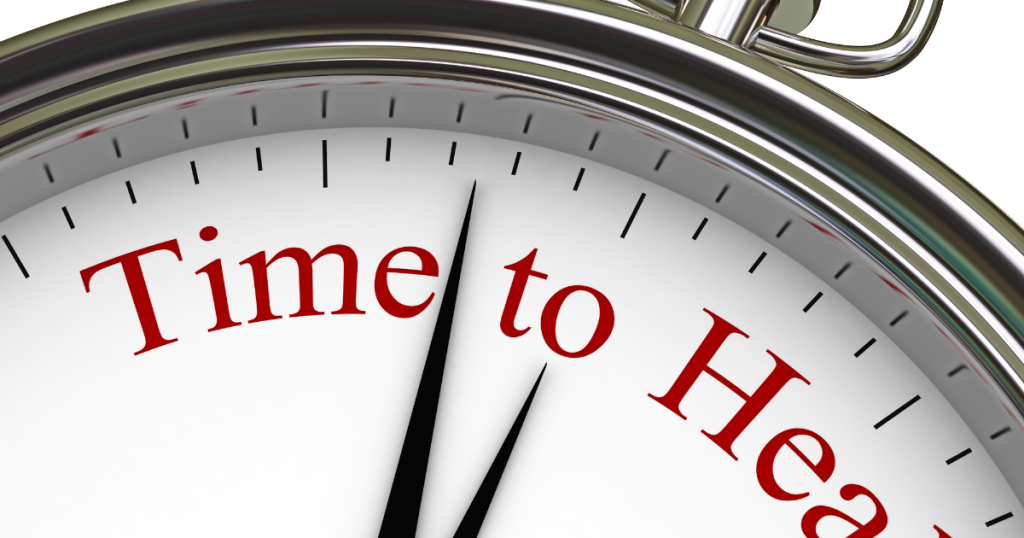We all carry them — some visible, like bags of groceries. Some hidden, like unwanted viruses. Rooted in the past and ruining life in the present, healing from past wounds isn’t as simple as stocking up on bandages.
It requires acknowledging the wounds and immersing in their emotional aftermath.
The good news, however, is that healing from past wounds is possible. And, if you do the work, there’s often an accompanying regret for allowing hurts to remain unhealed.
This topic reminds me of my elementary school PE teacher. He was fond of saying that life is like a game of dodgeball: At some point, everyone “gets whacked.”

As a child, I wondered if he was being literal or figurative.
I also wondered if he was suggesting that painful whacks are not only inevitable, but permanent.
I still don’t know what the heck he meant. I’d like to believe he was planting a grown-up message in young minds of the inevitable nature of life.
We all get “whacked” in life. Some hits land hard, some softly. But we always have the choice to get back up and return to the game, however long doing so may take.
Everyone’s wounds are different, of course, as is their healing.
There is, however, overlap in healing approaches. My PE teacher didn’t guide us on how or when to heal from injuries or wounds. And I know I wasn’t the only one who wondered if healing from past wounds, especially figurative ones, is really possible.
Is healing from past wounds possible?
Wounds — whether caused by heartbreak, betrayal, traumatic history, or dodge balls – can linger, kind of like an odor in an elevator.
But they don’t have to remain. Wounds can decrease in intensity, duration, and frequency.
Maybe you doubt you’ll ever really get over a past wound. You may feel as if you’ve tried everything to get unstuck, but nothing has really worked.
Or maybe you’ve settled into the belief that the wound occurred so long ago that it’s always going to negatively affect you.
Whether bouncing back or reinventing yourself and your life, healing can feel overwhelming.

Emotional healing doesn’t magically happen. There’s no abracadabra involved.
However, with a plan — and energy to put into the plan — you can heal from past emotional wounds.
Yes, the process inevitably has its ups and downs.
But the reward at the end is greater joy, meaning, and fulfillment; better relationships; more job satisfaction, creativity, and gratitude.
Consider, therefore, these 4 suggestions for healing from past wounds:

Oh, and contrary to the misleading cliché, time in and of itself does not heal all wounds.
1. Acknowledge past wounds and allow yourself to feel emotions.
Grieve, cry, rant, scream. It’s all OK.
Give yourself permission to identify and explore the full range of emotions. And be sure to do so with self-compassion and kindness.
Apply the same warmth to yourself that you would to a friend.
By acknowledging emotions, you open a path to emotional freedom rather than being weighed down by buried emotion.
Instead, you’ll have energy for your passions, building relationships, and (re)discovering personal strengths.
As a matter of fact, not allowing yourself to heal is like carrying around a backpack filled with heavy rocks. The emotional rocks weigh you down. They impact your self-esteem, confidence, and even physical health. You might find yourself avoiding relationships, isolating, or losing the ability to find joy in the simplest pleasures.
Not healing can lead to chronic stress, anxiety, and depression, especially if you set yourself up by expecting change to be quick or easy.
“Emma” is an example of someone who started healing from past wounds.
After a painful breakup, she was devastated. She believed she was destined to be alone forever.
So, she decided to face her emotions head-on. She cried “a ton,” wrote kind letters to
herself, and laughed at funny memes she collected to offset sadness.
Slowly, Emma began healing and rediscovering herself. She recognized that self-
compassion really does help to unlock emotional pain.
With newfound strength, Emma began rekindling friendships – and even dating.
It was not an all-or-none, however. She acknowledged progress along the way, which helped
her confidence and momentum.
A common unrealistic expectation is that progress is continually forward.
In actuality, progress is more likely two steps forward and one step backward — or even more steps backward and fewer forward.
The truth? Nobody just gets healthier and happier without some setbacks.
2. Embrace self-compassion, self-care, and attunement.
Treat yourself as kindly as you do/would your closest friend. When you become your own best friend,
you foster healing and personal growth.
When you ask a lot of yourself, you need to give a lot to yourself.
The reality is that emotional healing takes time and energy. To maintain momentum, pay attention to
feelings and sensations in your body (e.g. tight muscles, headaches, a queasy stomach). The physical
sensations are your body’s way of communicating what it needs.
Without self-compassion, you’re your own harshest critic. Self-criticism only emphasizes past wounds
instead of healing them.
Self-compassion is neither “poor me” nor pity. It’s a way to turn acceptance and love inward.
“Alex” is an example of someone who used self-compassion to guide him. After a traumatic event, his self-esteem deteriorated and self-doubt intensified.
Eventually Alex decided to experiment with some self-compassion and treat himself with kindness and understanding. Whenever self-criticism reared its ugly head, Alex countered it. He self-compassionately reframed distortions and re-engaged in hobbies he enjoyed.
Gradually, wounds began to heal, and Alex’s self-confidence improved.
3. Seek support and connection.
When healing from past wounds, surrounding yourself with supportive people helps. We thrive when we feel like we belong.
Healing typically doesn’t occur in isolation.
Consider reaching out to friends, family, or even a professional. Sharing struggles and victories will help you feel understood and less alone.
Is it worth the effort? Absolutely!
Connection and support provide emotional safety.
Without support, you’ll navigate in isolation and increase the probability of overwhelm. Bottling up feelings long-term ultimately backfires.
“Mike” is an example of someone who didn’t think healing was likely.
After a heartbreaking betrayal, Mike decided to tough it out alone.
He figured he’d heal by suppressing emotions. He distanced himself from friends and family and refused help.
The pain festered. Mike had trouble trusting others.
He built a wall around himself, drank a lot of alcohol, and interacted superficially with others. He realized he had to find a different approach to address his pain.
Mike began speaking with his cousin, who had been through painful breakups and used alcohol to numb his pain.
Although Mike’s life didn’t become rainbows and butterflies, he began to reach out to friends and even joined a running club to meet new people.
4. Be open to your feelings about the past.
You may be tempted to avoid feelings related to your old wounds.
But, feelings stick around and take up space. At some point they inevitably burst into consciousness.
This is why therapists talk about the importance of feeling your feelings. “You have to feel it to heal it,” as the saying goes.
The only way feelings can become part of the past rather than the present is by feeling them and then giving them space.
This may mean sitting quietly and allowing feelings to surface, naming them, and curiously exploring what they’re about. I call that the “name, claim, and frame” approach.
Healing from past wounds can be like riding a rollercoaster with lots of twists and turns, ups and downs.
Ignoring past wounds is more like getting stuck on a rollercoaster.
Stagnation.
And there is no healing in stagnation.
Life is filled with joys and challenges.
Emotional wounds from past experiences are common. They may result from childhood, recent events, or the loss of a loved one. They may manifest as a failed career or job difficulties.
Regardless of their origin, wounds can scar and impact mental and physical well-being.
Life is also filled with possibility, opportunity, and hope.
Look for and you will more likely find guidance, tools, and coping mechanisms to meet your own needs.
Add time, patience, and self-compassion, and you’re well on your way to healing past wounds.


